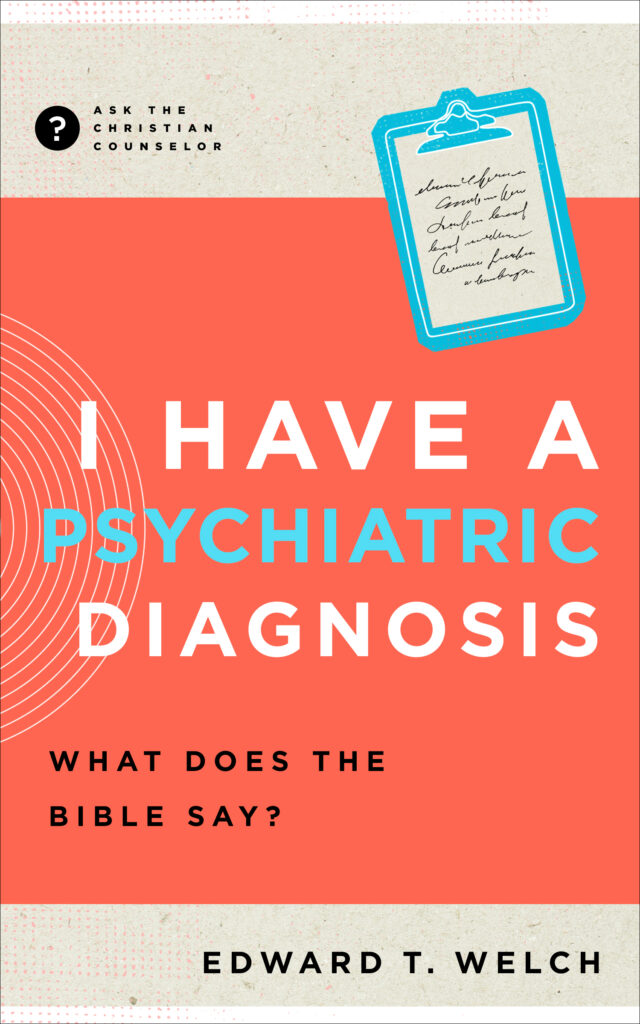God’s words seem quite far away when you or someone you love labors under a psychiatric problem. Depression, panic, bipolar disorder, ADHD, oppositional defiant disorder, and dozens of other well-known diagnoses—none of them appear in Scripture, so we tend to look other places for help. That trip into Scripture, however, is a critical one. Medication and expert help can relieve symptoms for some people, but they don’t hold out the full life and hope that come from the presence of the God who is both the maker of heaven and earth as well as the lover of your soul. So when mental or emotional struggles tighten their grip, we, more than ever, need to hear what God says.
The apostle Paul was interested in bridging this divide, too. When he learned of Jesus, his entire story was revised. There was no place in which the light of the risen Jesus did not shine, and he wanted us to share in it. What was this message that reached everywhere? “I decided to know nothing among you except Jesus Christ and him crucified” (1 Corinthians 2:2). From this starting point, he tackled problems such as divisions in the church, cult of personality, meat sacrificed to idols, and spiritual gifts. Then he authorized us to take that strategy to everything else. With this in mind, consider how the cross comes close when you struggle with depression.
- The cross begins its journey to you by saying, “In this the love of God was made manifest among us, that God sent his only Son into the world, so that we might live through him” (1 John 4:10). The sacrifice Jesus made on your behalf is the evidence of his steadfast love. This means that every word you hear will be good, almost too good to be true. “Who shall separate us from the love of Christ?” (Romans 8:35). Depression is overwhelming, but it is not strong enough to keep you from Jesus or to keep Jesus from you.
- The cross is often summarized as the proclamation of forgiveness of sins. Notice that depression is usually accompanied by guilt and regret, and they certainly isolate you from God and others. Jesus has taken these on himself. Evidence for this is that, though your faith feels very small, you are still willing to listen to him. That is the work of the Spirit in you. Jesus has taken sins on himself and given you his righteousness in a most lopsided trade.
- Do you feel too unworthy to come to Jesus? The cross guarantees that he never turns away anyone who comes to him (John 6:37). If you are too tired to come, he comes to you (Revelation 3:20).
- The cross unites you to Jesus so that his mission is now your own. “You are not your own, for you were bought with a price” (1 Corinthians 6:19–20). When you are depressed, you have no motivation for anything. You feel dead. As a result, suicide never seems far away. Your mission, however, is nothing less than bringing heaven to earth in a way that your work of faith has permanence. You do this as you love another person.
- Does everything seem impossible, as though you were too weak to do anything? And how could you belong to Jesus when you feel so useless? Here is one of the deep truths of the cross: Christ was weak both with you and for you. He is also strong when you are weak. It turns out that weak is how God’s children normally feel.
- Since the cross brings all of God’s people to himself, God has intended that these fellow travelers help us when darkness seems to overtake us, as we also help them. That help offered to others—a text, a prayer, a visit—will be one way you love and live out your mission.
There is much more that could be said. There are many details in these brief points waiting to be identified. This functions as a reminder. But it is more than that. It is also a revelation—a gift from Jesus himself. These deep spiritual matters are not magic that removes your troubles, but they point to the path of power. On this path, the soul-deadening tendencies of depression collide with the new words of hope that can surprise you in their goodness. The apostle Paul tells us that there is nothing more important than this revelation, and he encourages us to insist that the Spirit give us even more of Christ and him crucified.
I have a Psychiatric Diagnosis: What does the Bible say?
A psychiatric diagnosis can be heavy burden—for you or someone you love. But we know this: God is not silent when his people struggle. What does God say? Edward T. Welch helps you answer that crucial question by exploring how God’s Word speaks in ways that can help you find wisdom, rest, and hope in Jesus, even with a psychiatric diagnosis.






